What Size Generator Will Power a House?
Generators are extremely useful to have as backup power, in case you have a power outage. There are a lot of factors that must be taken into consideration to determine which size generator you need. For example, the size of your house, the amount of appliances you want to power in your home and your family lifestyle.
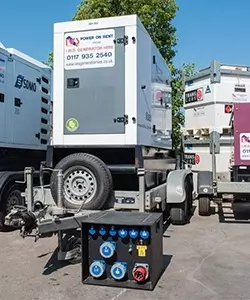
The size of generators is measured by the amount of power they can give out. The size you have is so important because if the generator is too small for your house, then your appliances won't be able to be powered up and it could cause the generator to break down or overheat. On the other hand, if the size of your generator is too big for your household, then you will be paying too much, as some of the power won't be being used.
To calculate the amount of power each home uses, you need to work out the starting wattage (surge wattage), running wattage and total wattage of each piece of electrical equipment. This does include everything that needs power in your home, even your electric fan.
Sizes of Generators
The different sizes of generators consist of various rated watts (W), which can be useful for an array of circumstances. It is crucial to get the right size for you, so there are some guidelines below. However, it is important to check with a professional to ensure problems aren't caused.
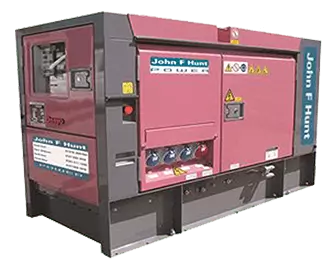
5 kilowatts (kW)
This generator size is perfect for smaller homes with either a single person or couple with no children. It can power a couple of smaller electrical appliances, such as a few lights and a little fridge freezer.
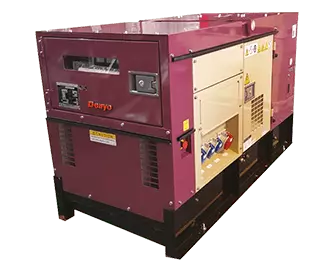
6.5 kilowatts (kW)
A 6.5 kW generator can power the essential appliances in your house, and is a good choice for a small family. This generator can power a small living room with a little amount of family electric appliances.
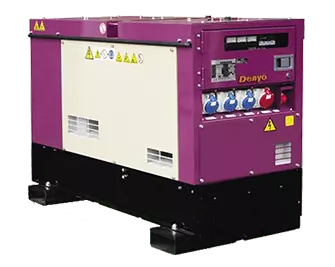
8 kilowatts (kW)
If you enjoy to work from home, or watching the television with your family, then this generator is the one for you. It can run all your essentials, such as lighting and heating, with some added luxuries.
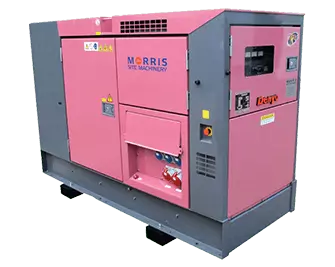
10 kilowatts (kW)
A kitchen uses up a lot of power, as it probably has the most electrical appliances. This generator can power a kitchen perfectly, along with your other essential electrical units, a laptop or computer and a TV.
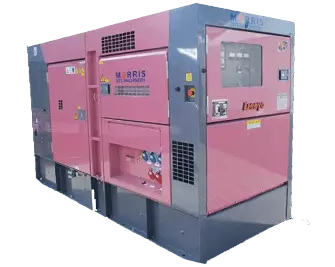
15 kilowatts (kW)
For a larger family, this generator is ideal as it can supply power a large amount of power to a house, along with all the essentials. This generator allows more comfort electrical items, such as gaming systems.
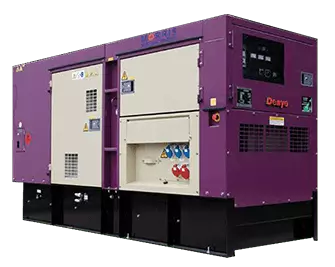
25+ kilowatts (kW)
These size generators can power mostly everything in your entire house, and more. For the utmost luxury and comfort, these generators are perfect for you and your family. From washing machines and dryers to the air conditioning.
What Types of Generators Are There?
There are three main types of generators, each sharing similarities and differences. To select the type of generator that is right for you, you must consider the following:
- What appliances need to power; mainly the essentials
- The size of your house and the number of people living there
- How you want the generator to run, for example, if you would prefer it to provide quiet operation, be lightweight and easy to move around, and the amount of appliances you need it to power
- How often you use your appliances (so how often they'll be switched on)
Portable Generator
Portable generators are very useful during natural disasters when there is a grid power outage, as they can still supply power.
Usually, these generators are used for residential purposes and small businesses, such as shops or a construction site to power small tools.
Inverter Generator
Inverter generators produce AC power, which reverses the direction of the electrical current and is produced by converting AC power into DC power, by the rectifier, which then reverses it back into AC. This ensures a steady current for your appliances, such as refrigerators and vehicles, for them to run better.
Standby Generator
A Standby generator is basically a backup power system, as it can automatically switch on when the power fails and turn off when the power comes back on. These generators are usually used in large or higher buildings that hold a lot of people such as hospitals, hotels and apartments.
What Appliances Need Power In Your Home?
Usually, there are a lot of appliances in your home that will need power. The most important question is how much power does each individual appliance take up. This will mainly depend on the amount of time the appliance is on for, and how much you use it. Here is a list of appliances and the running wattage of each:
- Fridge: 40 - 120W
- Freezer: 150W
- TV: 30 - 450W
- Washing Machine/Dryer: 1200 - 3000W
- Electric Hob: 1000 - 2000W
- Dishwasher: 1050 - 1500W
- Kettles: 2200 - 3000W
- Lights: 15 - 100W
- Microwave: 600 - 1500W
- Heater: 3000W
- WiFi: 7 - 10W
- Portable Device Charging: 6 - 60W
Different Types of Houses
The average power consumption in a UK household is an estimate of 4,000kWh; however, keep in mind that this will depend on the type of house you live in. This is because usually for a larger sized house, more lighting, electrical appliances and heating are needed in the house and therefore a lot more energy is required.
Here is a list of the different types of houses and the average power requirements for each:
- Bungalow: 3866 kWh
- Detached: 3911 kWh
- Semi-Detached: 4916 kWh
- Flat: 2779 kWh
- Terrace: 2779 kWh
Can a Generator Power an Air Conditioner?
The short answer to this question is yes; however, there are some factors that you should think about regarding this. For example, if you have a small generator, you may only be able to power the air conditioner through this, and none of your other appliances, or at least very few.
If you have or wish to purchase a generator with a large amount of watt power, for example, 25+ kilowatts, then you will be able to power your air conditioning along with all your other luxuries and essentials.
However, it is important that you get the size correct, as otherwise, your generator could break down due to higher demand than it's designed for.
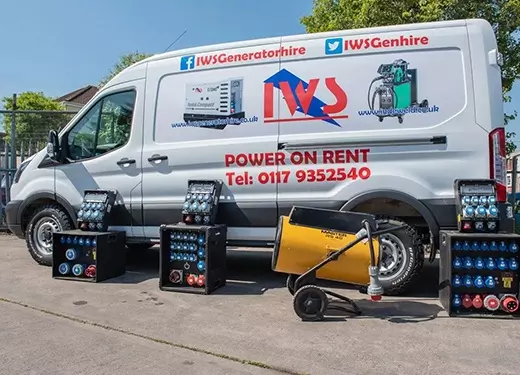
Household Circumstances
There are many different variations of household circumstances, such as:
- Couple with children
- Couple with no children
- Multiple people (house-sharing)
- Single person
- Single person over the age of 65
- Couple over the age of 65
The household circumstances will determine the amount of power used for lighting, electric heating, hot water and other electrical items, such as laptops, computers and TVs.
This is due to the fact that usually, households with more occupants have more lights on, maybe more than one TV, more phones or laptops to charge, more washing, drying and cooking to do and the heating may need to be on longer to heat the whole house. Some families may work from home, which will require more electrical power.

Conclusion
To choose the perfect generator for your home, you must find out the power needs of your entire household. There is a lot to take into consideration and a lot of working out to do. There is no right or wrong answer to this question, as it purely depends on you and your family. Make a list of all the appliances you use on a daily basis and are essential to you and your family. Work out how much power each of these appliances use up, and choose the generator size that will cover the wattage.
Consider how many people live in your house, how long your appliances will be on for and how often they are used, the type of house you live in, and your lifestyle. For example, if you work from home, if your children like to play computer games, if you cook for a big family, how often the shower and bath are on, and other important factors.
IWS Generator Sales
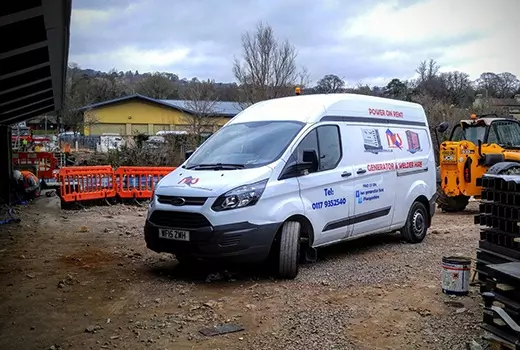
Our company is based throughout the UK, delivering the best customer service and generator sales to you. We can help you select which generator to buy from our range of brands, due to our extensive experience in the industry, we know which generators will suit our customers.
We can help you determine the total wattage use of your electrical appliances, offer expert advice and deliver your generator to your door. We offer both generator sales and hire services, with a wide variety of brands, sizes and types. As well as this, we offer repairs and servicing for generators. It is essential to have your generator serviced, otherwise problems could be caused later down the line.
If you would like to find out more information or have any questions, please search our website or call us or email us, and a member of our team will always be happy to make time to help you. Also, if you would like to get an estimated cost, you can contact us today, and we'll calculate on for you.
If you are looking for reliable generators for sale, we provide the best brands with UK wide delivery.





